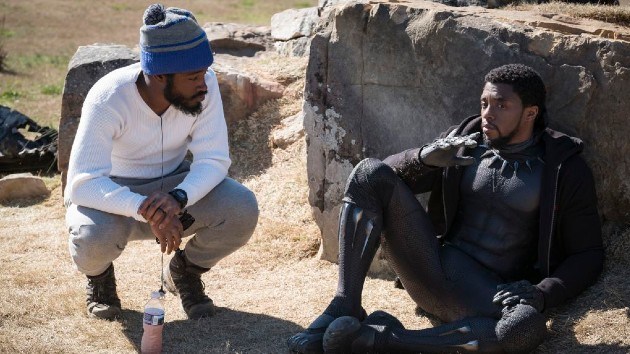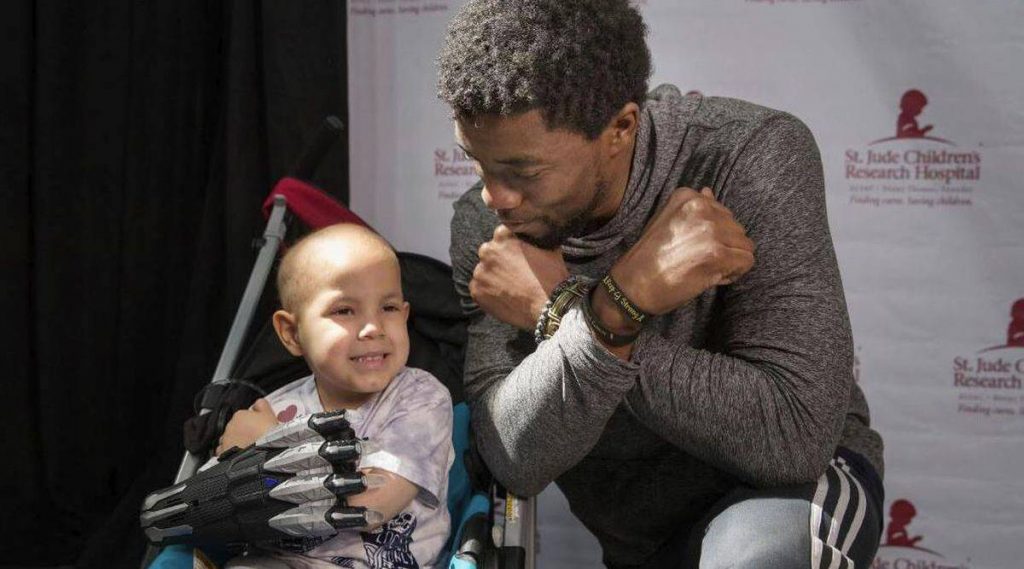I’m still stunned by the too-young passing of Chadwick Boseman. I loved Boseman as Black Panther and enjoyed following his career. I couldn’t wait to see him revisit the character in a sequel.
More than that, I admired him as a person. By all accounts, Boseman was kind, generous, and thoughtful, using his platform to be a hero to kids. It was just the behavior you’d expect from Black Panther.
Black Panther was a movie about fathers and conquest, but the conflict in Marvel movies boils down to a fight between good and evil. On one side is Black Panther, while on the other is Killmonger. The job of heroes is to vanquish these evil foes, and care nothing of it. Shucks, you might even be able to grab a little shawarma afterward.
But Marvel movies have a way of weaving in secrets and foibles. There might be shades of grey or difficult choices. Nothing comes easy for heroes and sometimes you can’t tell the difference between the heroes and the villains.
But Black Panther made me want to be a better man. And I’m not sure I used that reference in the correct context, but let’s go with it, because all I saw from the life of Chadwick Boseman pointed to a person with character.

Here’s what his director, Ryan Coogler, said about Chadwick Boseman: “I noticed then that Chad was an anomaly. He was calm. Assured. Constantly studying. But also kind, comforting, had the warmest laugh in the world, and eyes that seen much beyond his years, but could still sparkle like a child seeing something for the first time.” He continued with this: “...he was a caretaker, a leader, and a man of faith, [and] dignity…“
Boseman had an incredible film resume, but what people who knew him really remembered was his personal virtue. So, how can we be awesome like Black Panther was awesome?
Only a Virtuous Person is at Peace
When I get existential, I don’t look to TikTok for comfort. I prefer the classics. In fact, let’s go old school philosophical on this one. The question about being good was asked by a character in Plato’s Republic. The character Glaucon has a magic ring that turns him invisible and Glaucon thinks that’s a perfect way to avoid potential punishment.
So, in Glaucon’s mind he might as well be self-serving because who would even know? In other words, why be virtuous when there are no consequences, thought Glaucon? He was aligned chaotic evil at this point.
But Plato spent the rest of the Republic showing that only a virtuous person is at peace. And for Plato, a good person balances their passions and appetites. Further, Plato argued, morality is tied to others via an empathy that causes us to care for their well-being. The question in Plato’s mind wasn’t even “What is the right thing to do?” but “What kind of person do I want to be?“
Who knew Plato had something to say about Marvel movies?
Fine, so Plato argues we should be of good alignment, fully on the side of heroes. But what is the big deal if I dabble in a little Killmongering on the side? It’s just a superhero movie, pal, so lighten up on this morality stuff, am I right? Well, once again, Plato would argue that what you do always matters.
For Plato, every day small actions were important – such as play was where you “play tested” life’s choices and actions – and this thinking was continued with Aristotle, who coined it “virtue ethics.”
The idea was that one becomes virtuous by making choices that develop into habits that in turn form moral character. They’d argue that doing virtuous actions creates virtuous character, and doing evil actions creates vicious character.
So apologies to Allen Iverson, but practice matters in being a good person; at least if you are influenced at all by the last two millennia of ethics philosophers. The small things matter, and how we treat others might matter most of all.
True Superhero Status

I don’t have a vibranium suit, nor am I imbued with the power of the Ancestors by way of a magic flower, but I do have day-to-day interactions with others. In the midst of that, I make a million tiny decisions in the course of my day.
Maybe a takeaway from Marvel movies is that we can all benefit from a little moral decision making practice, just as Plato predicted. Yet maybe this is starting to bug you. That’s understandable, as morality is controversial in the real world. Nobody likes to be preached to, nor do they like limits placed upon them, which is probably one of the reasons that an actor like Chadwick Boseman didn’t demand that everyone call him King T’Challa in real life. Instead, he humbly visited children’s hospitals.
Maybe we don’t want to be Black Panther, who felt deep down that his moral character wasn’t aligned with the secrets, violence, and duplicitousness that he learned was present in Wakanda’s history. Maybe we simply want a supersuit and women warriors to open doors for us, because what’s wrong with settling for a little good while the rest of life is for personal gain or to feel good in the moment?
It is what you do in this real world that reveals your true superhero status. As for me, I’m following the example set by the life of Chadwick Boseman. And to get there I’ll need all the practice I can get.

